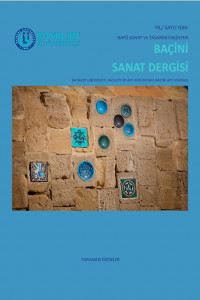SAHTE HABER VE KÜRESEL ENFORMASYON: HAKİKATİ ARAMAK İÇİN BAKIŞ AÇILARI VE PERSPEKTİFLER
Sahte haberleri tespit etmek, dijital çağda gazetecilik için en acil sorunlardan biri haline gelmiştir. Bu tarz haberler, makul görünümleriyle ve her şeyden önce kasıtlı manipülatif niyetleriyle karakterize edilirler.
Bu fenomen özellikle, gazetecilik değerlerinden daha çok kârla ilgilenen büyük şirketler tarafından yönetilen uluslararası haberleri etkilemektedir. Bu senaryoda, haberlerin kalitesini etkileyen bir tersine dönüş yaşanmaktadır: her zaman bilgi arayan izleyiciler değil, daha çok bir düğmeye tıklayarak izleyicileri arayan bilgi.
Bu kanıt, gazetecilere bilgi kontrolünün doğrulanması ve çeşitlendirilmesi için mekanizmalar arama ihtiyacını dayatmaktadır. Büyüyen çok kutuplu bir dünyada ve insanlığın karşı karşıya olduğu sorunların küresel doğasını gösteren bir pandeminin ardından, insanların ilgi odağında olduğu yeni bir düzenin yeniden inşası önceliklidir. İklim değişikliği veya büyük göçler gibi yeni zorluklar, yalnızca uluslararası gazeteciliğin doğruluğuyla ve özel sektörle değil genel refahı hedefleyen eşitlikçi bir kolektif insanlık projesini korumak için haberlerin sorumlu tüketimine değer veren kolektif bir bakış açısıyla ele alınabilir.
Anahtar Kelimeler:
Sahte Haber, Hakikat, Küresel Enformasyon Düzeni, Haber.
FAKE NEWS AND GLOBAL INFORMATION: ANGLES AND PERSPECTIVES IN THE SEARCH FOR THE TRUTH
Detecting fake news has become one of the most pressing challenges for journalism in the digital age. They are characterised by their plausible appearance and above all by their deliberate manipulative intent.
The phenomenon particularly affects international news, which is mostly managed by large corporations more concerned with profit than with journalistic values. In this scenario, a reversal is taking place that affects the quality of news: it is not the audiences who are always looking for information, but rather it is the information that seeks out the audiences at the click of a button.
This evidence imposes on journalists the need to seek mechanisms for verification and diversification of information control.
In a world of growing multipolarity and in the wake of a pandemic that has demonstrated the global nature of the problems facing humanity, the reconstruction of a new order in which people are at the centre of interest is priority. New challenges such as climate change or major migrations can only be tackled from a collective perspective that values the veracity of international journalism and the responsible consumption of news in order to preserve the collective project of an egalitarian humanity aimed at the general welfare and not at private profit.
Keywords:
Fake News, Truth, Global Information Order, News.,
___
- Alvaro, S. (2017). Noticias falsas: compartir es curar. https://lab.cccb.org/es/noticias-falsas-compartir-es-curar/
- Becker, B. W. (2016). The librarian’s information war. Behavioral & Social Sciences Librarian, 35(4), 188-191. https://doi.org/10.1080/01639269.2016.1284525
- Douai, A. (2019). Global and Arab media in the post-truth era: Globalization, authoritarianism and fake news. https://www.iemed.org/publication/global-and-arab-media-in-the-post-truth-era-globalization-authoritarianism-and-fake-news/?lang=es
- Egelhofer, J. L. & Lecheler, S. (2018) Fake news as a two-dimensional phenomenon: a framework and research agenda. https://doi.org/10.1080/23808985.2019.1602782
- Finley, W. McGowan, B. & Kluever, J. (2017). Fake news: An opportunity for real librarianship. ILA re-porter, XXXV(3), https://www.ila.org/publications/ila-reporter/article/64/fake-news-an-opportunity-for-real-librarianship.
- Fort, C. (2019). Deconstruyendo las fake news. https://blogs.uoc.edu/comunicacio/es/deconstruyendo-las-fake-news/
- Keane, J. (2018) Post-truth politics and why the antidote isn’t simply ‘fact-checking’ and truth. The Conversation. https://theconversation.com/post-truth-politics-and-why-the-antidote-isnt-simply-fact-checking-and-truth-87364
- López-Borrull, A. & Ollé, C. (2020) Curation of scientific content in times of fake science and Covid-19: an approximation between information and communication sciences. http://profesionaldelainformacion.com/documentos/libro_ae-ic/lopez_olle.pdf
- López-Borrull, A., Vives-Gràcia, J. & Badell, J. (2018). Fake news, ¿amenaza u oportunidad para los profesionales de la información y la documentación?. El Profesional De La Información, 27(6), 1346-1356. https://doi.org/10.3145/epi.2018.nov.17
- McNair, B. (2018). Fake news: Falsehood, fabrication and fantasy in journalism. Routledge.
- Meneses, G. (2018). Las fake news: quien las crea , para qué y cómo se propagan http://www.uncode.cafe/mentiras-y-verdades/las-fake-news-quien-las-crea-para-que-y-como-se-propagan
- Oxford Dictionaries (2016). Word of the Year 2016 is… Oxford Dictionaries. https://en.oxforddictionaries.com/word-of-the-year/word-of-the-year-2016
- Rochlin, N. (2017). Fake news: Belief in post-truth. Li-Brary Hi Tech, 35(3), 386-392. https://doi.org/10.1108/LHT-03-2017-0062
- Vosougui, S., Roy, D. & Aral, S. (2018). The spread of true and false news online. Science, 359(6380), 1146-1151. https://doi.org/10.1126/science.aap9559
- Başlangıç: 2023
- Yayıncı: Bayburt Üniversitesi
Sayıdaki Diğer Makaleler
MEDYA VE FAS KAMUSAL ALANINDAKİ DİNİ SÖYLEMİN ARABULUCULUĞU
KASTAMONU ÇEŞMELERİNİN TİPOLOJİK AÇIDAN İNCELENMESİ
TÜRK ÇİNİ SANATINDA BİR TEKNİK: BAÇİNİ
Yavuz Kaan KONUK, Umut Barış USTABULUT, Furkan BAYRAK
SAHTE HABER VE KÜRESEL ENFORMASYON: HAKİKATİ ARAMAK İÇİN BAKIŞ AÇILARI VE PERSPEKTİFLER
